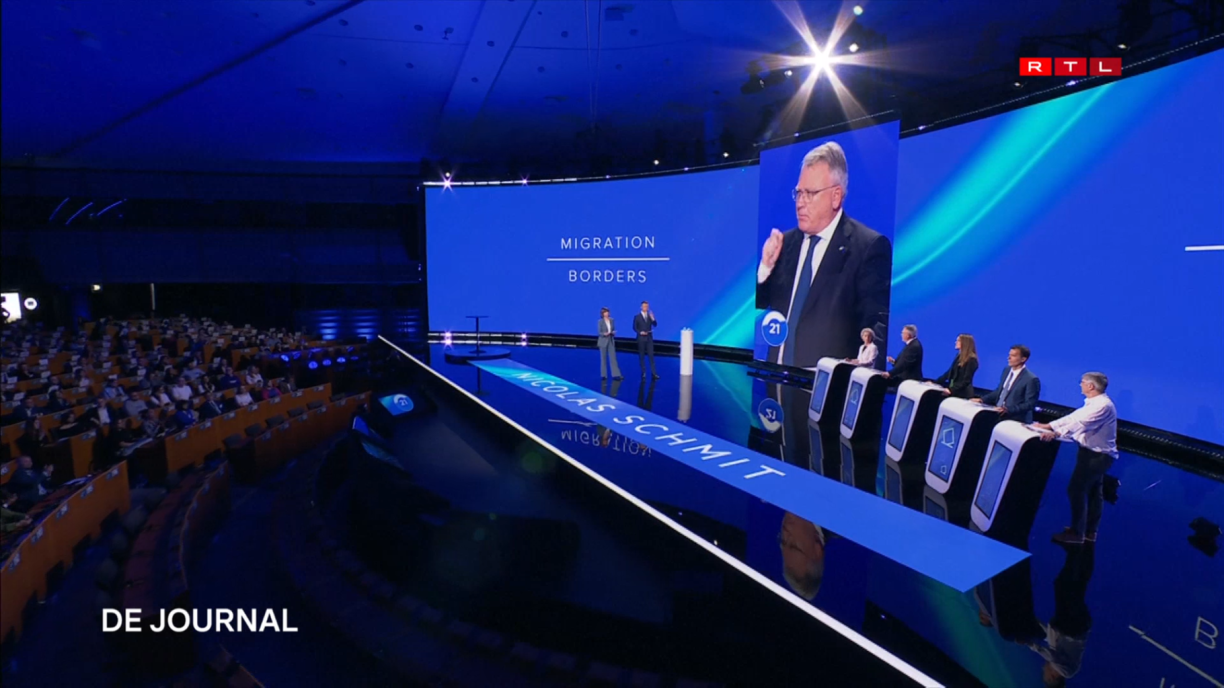
Broadcast across Europe, the European Parliament in Luxembourg invited the public to follow the discussion on a large screen.
The lead candidates from the European People’s Party (EPP), European Social-Democrats, Greens, Renew, and European Left faced questions from journalists, a young audience, and participants from various member states in Brussels.
Ursula von der Leyen faced repeated enquiries from other candidates about her willingness to collaborate with right-wing political groups. Schmit also pressed her on this matter, seeking clarity: “Without democracy, there is not a real European Union. And that’s why we need clarity on that, and I ask Mrs von der Leyen: Please, bring clarity.”
In response, Von der Leyen stressed the importance of establishing clear principles for collaboration: “I think it is very important to set very clear principles: With whom do we want to work? With members of the European Parliament that are not only one thing but have three criteria. The first is pro-Europe, the second is pro-Ukraine, that is anti-Putin, and the third is indeed pro-rule-of-law.”
On the topic of migration, Schmit also distanced himself from von der Leyen and criticised the EU’s agreement with Tunisia:
“I suppose that you [Ursula von der Leyen, editor’s note] know what’s going on in Tunisia. What happens to the refugees who are pushed into the desert, who are really beaten up, some of them killed. This is not Europe! These are not European values! This is an agreement with […] a very special, nasty dictatorship. So don’t tell us it’s about fighting smugglers. It’s about fighting the refugees, which are pushed to the desert and many of them die.”
Live broadcasts of the debate were organised in many member states, including at the European Parliament in Kirchberg.